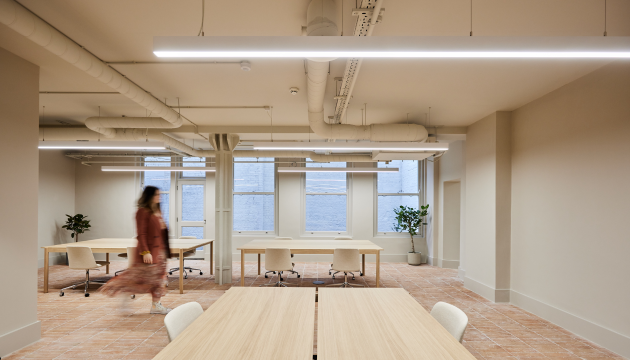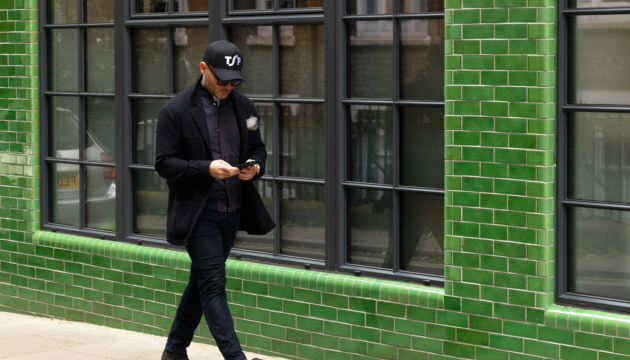I recently took part in a panel discussion as part of Bisnow’s “The Evolving Office: The Merging of Physical & Digital” event. We were tasked with discussing transformative technologies and how they’re impacting CRE at the moment. These are my 5 takeaways:
1.Technology is pointless unless it solves a problem
It’s tempting to fill a building with the latest tech and start collecting data, mobilising a command and control centre from which you’ll be omnipotent and omnipresent. But unless you’re collecting and sharing useful data, it runs the risk of becoming an expensive vanity project.
What data is useful? It’s anything that customers can use to improve their experience within the building. Currently air quality is popular because people want to know that their building is healthy. Similarly, desk booking platforms have a practical use, they allow customers to begin experimenting with hybrid working.
Providing technology like this means helping to solve the customer’s problems. This differentiates your product and makes it more valuable.
These things may sound obvious to those well versed in the current debate around ‘back to work’. But I can assure you that adoption of even these simple types of technologies by landlords is not widespread. Anyone offering it is still early.
2. It’s still too early for customers to know exactly what they need
Is the customer a Goldman or a Deloitte? Two very different approaches to reopening, and the reality is that landlords will be faced with different shades of occupation once we reopen. There is no single trend.
The customer is therefore faced with operational problems that need to be solved. In the next few years, customers are unlikely to simply arrive at a fully-formed and efficient workplace and say “this is it”. Instead, they will be experimenting and will try various iterations in their quest for productivity in its many guises (creative output, staff retention, training, etc).
The office needs to be somewhere that people want to come to, that draws people in, because it is a pleasant, productive and healthy environment. The successful landlord understands this.
3. Flexibility is key
Technology will enable an increasingly flexible and adaptive workplace. It is already true that some technologies enable this flexibility and promote collaborative environments, (an example mentioned during the discussion was digital whiteboards). Booking systems help customers use space more responsively.
As well as flexible lease terms, customers want adaptable space. This space can then be rearranged to suit working practises or particular projects.
When forming these new spaces there are two approaches to the data collected:
- Quantitative – Using occupancy data to adapt spaces based on usage would be an example of this.
- Qualitative – Taking regular surveys to gauge the feelings and expectations of the human at the centre of all the technology. For example, a net promoter score.
A customer’s space can then be adapted in whatever way works best for them. We’ll begin to see very different office set-ups for different organisations.
4. Customers are more mobile than they have ever been, and want to embrace technology
Everyone is in the cloud. Most people can work form anywhere. Digitisation projects have been prioritised during the pandemic meaning that very few are wedded to an expensive server, phone system and fit out. This has major implications for landlords that have been used to fixed 5 -10 year leases.
Customers are much more willing to invest in new technology. Their own customers and staff now expect it. A recent Forrester survey found that 99% of respondents will need assistance with technology in the next year.
It’s a clear signal to landlords that this is what customers want.
5. Technology will increase the value of buildings
I believe that landlords who embrace technology will see the value of their assets increase:
- Offering a managed service means a higher rental value. We’re only just beginning to see this in the market, but there is a clear 20%+ premium on managed space.
- Working collaboratively with tenants keeps them in your ecosystem: Fewer voids, lower marketing costs, more income.
- It fights obsolescence. This is especially true in the context of sustainability, where the demands on buildings are only set to increase.
- The data produced has a value. It leads to better decision-making and a stronger asset management strategy for the building.
So forward-thinking landlords will benefit financially as well as operationally.
Missed it?
Anyone interested in viewing it can watch the whole thing here.
And everyone should check out Google Starline which we mentioned at the end. This, or something similar, is a truly transformative technology for the workplace.
Featured Stories & Insights
 30th January 26
30th January 26
Data, Demand & the Future of Office Performance
In conversation with Greg Blanchard, Portfolio Manager at TSP Data has become a big theme...
Read More 28th January 26
28th January 26
Goodman’s TSP Goes Nationwide with KSA Acquisition
LONDON, 20th January 2026 | News by Tim Burke, EG TSP, the office-focused property manager...
Read More 8th January 26
8th January 26
Business Rates are Changing in April: 4 things charities should watch for
Business rates are being reset in April 2026, and for charities this is a direct...
Read More 8th January 26
8th January 26
4 Ways to Win the Office Game in 2026
The office market is recovering, but not evenly. As we move into 2026, one thing...
Read More 17th November 25
17th November 25
Lessons Learnt from 2025 | by Zac Goodman
The market shifted (again), expectations changed (again), and the way people use space evolved in...
Read More 10th November 25
10th November 25
From Vauxhall to Value: How Aldgate Became London’s Charity Heartland
TSP’s Jonathan shares his perspective on why Aldgate has become the go-to destination for London’s...
Read MoreView all